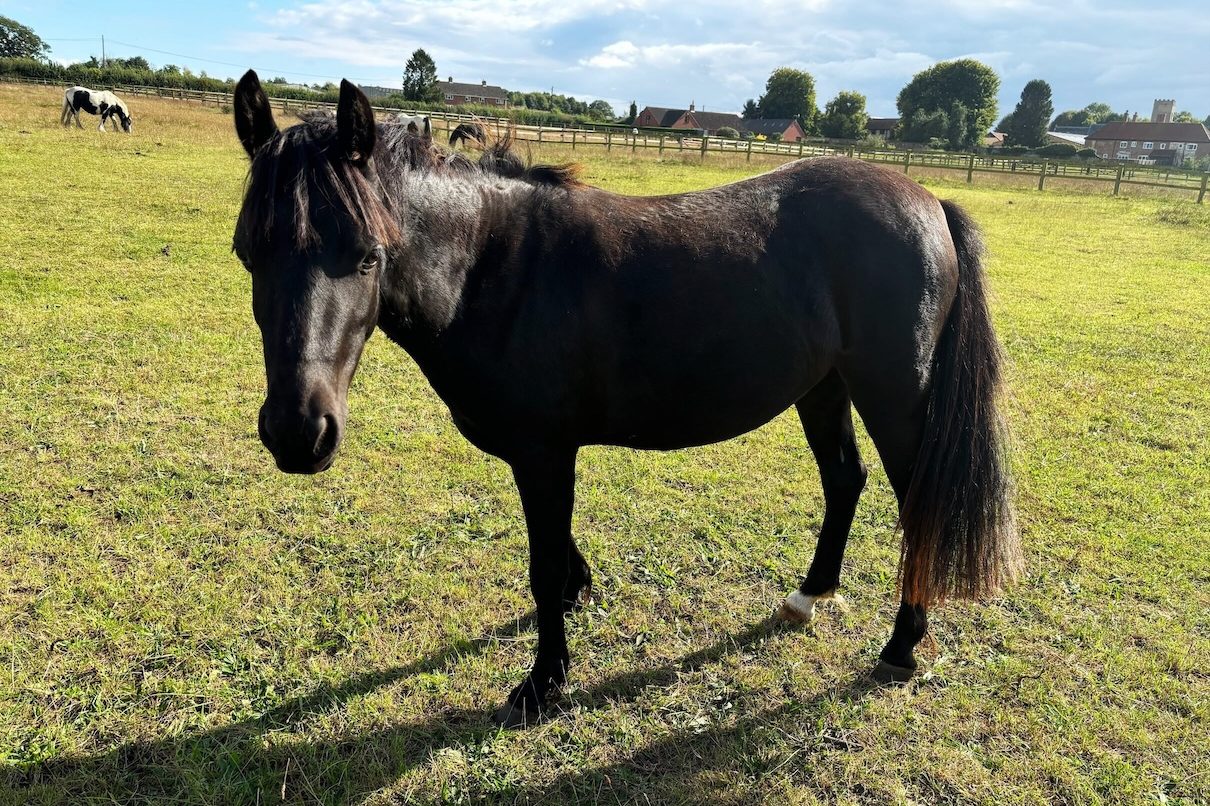World Horse Welfare has resumed its rehoming programme after being paused for months due to an outbreak of strangles, the most common highly infectious disease affecting horse health.
The charity’s Hall Farm rescue and rehoming centre, near Snetterton, was forced to halt all rehoming activity and close to the public in February of this year when a new arrival tested positive for strangles.
Despite stringent biosecurity measures, the disease quickly spread, prompting an immediate lockdown on all equine movements at the Hall Farm site.
It is believed that the strangles outbreak originated from one of 20 horses and ponies that were being illegally smuggled out of the country.
The charity’s attending officer described their rescue as being “a heart-breaking scene”. Many of the equines were sick and weak, and they were being transported in horrific conditions.
“Despite our strict protocols, strangles was confirmed in one of the new arrivals and spread to other horses on the farm,” said centre manager Sue Hodgkins.
“We responded swiftly, working closely with vets every step of the way to contain and manage the situation.”
‘A horrible disease’
Strangles is a highly contagious bacterial infection in horses caused by the bacterium Streptococcus equi, which affects their upper respiratory tract.
Equine vet Dr Imogen Burrows told Your Horse how the disease is not prejudicial.
“Any horse can get strangles, whatever their age, breed, health or value, and it is a horrible disease,” she stated.
“For affected horses, strangles can cause suffering and in the most severe cases the complications can be life changing.
“In rare cases, horses can die. Quite rightly, there is a lot of concern and worry around strangles in horses.”
Outbreak under control
After months of careful quarantine, testing and vaccination, the rescue centre has now brought the outbreak under control and is once again offering horses and ponies for rehoming.
“We are delighted to finally be able to start finding new homes for our horses again,” said Sue.
“Hall Farm is currently at maximum capacity, so we can’t take in any more equines in need of our expert care until we make space by finding some of our horses and ponies loving homes of their own.
“I’d urge anyone looking for a horse to consider rehoming — by doing so, you’re not only offering that horse or pony a second chance in life, but also making space for another one in need to come into our care.”
Colour-coded paddock system
World Horse Welfare’s UK director, Malcolm Morley, echoed the importance of rehoming as a vital part of the charity’s mission and described how a colour-coded paddock system has helped to control the disease.
“With our horses being very carefully managed and separate teams caring for horses with different infection statuses, our paddocks have been designated as red, amber, or green zones,” he said.
“As more and more of our horses have reached green zone status — meaning they’ve tested clear of strangles and been vaccinated — we’ve been able to restart our rehoming scheme.
“Every horse and pony now available for rehoming at Hall Farm has been screened using the gold standard test (guttural pouch lavage), completed a two-dose strangles booster vaccination course, and spent a quarantine period in a green zone paddock.”
Available for rehoming
Hall Farm currently has eight horses and ponies available for rehoming.
Rehoming coordinator Gemma Hanshaw shared that most are non-ridden companions, though two younger ponies may be suitable for light work in the future.
“Crumble and Petal, both aged two, have the potential to make brilliant children’s ponies when old enough,” said Gemma.
“The others range in age from five-year-old Captain Tom to 22-year-old Dolly, who will make a wonderful companion to another pony who needs to watch their waistline.
“We’d love to hear from anyone who thinks they could offer one of our horses and ponies the perfect home.”

Support and understanding
Whilst rehoming has resumed, the farm is still currently closed to the public, with plans to potentially re-open in time for the school summer holidays.
Manager Sue Hodgkins expressed gratitude for the continued understanding of the local community.
“It’s been a really tough time for the team, but our supporters have been amazing,” she said.
“We’d like to say a huge thank you for their support and understanding about not being able to visit during the outbreak.”
Updates from World Horse Welfare regarding reopening to visitors will be posted on their news pages or social media.
Images © World Horse Welfare
Related content
- Latest vet advice about highly contagious strangles
- Outrage as 20 horses and ponies found being fraudulently transported out of the UK
- Miracle foal born to mare saved as part of the ‘Trafficked 20’
- ‘Dover 26’ horses rescued from being smuggled last year are seeking new homes
- Yard shares devastating impact of strangles in bid to protect other horses







